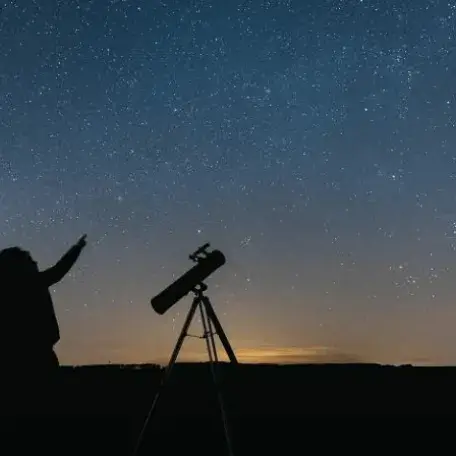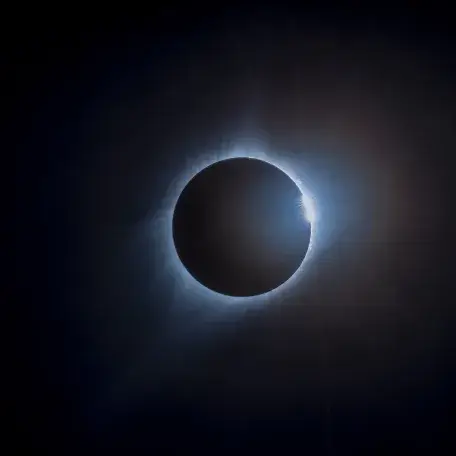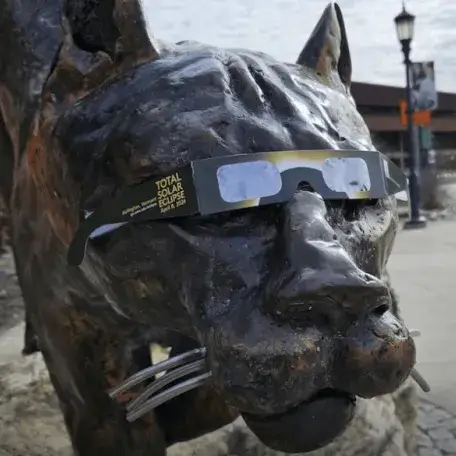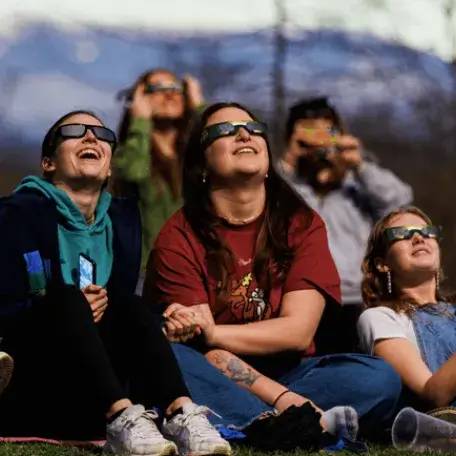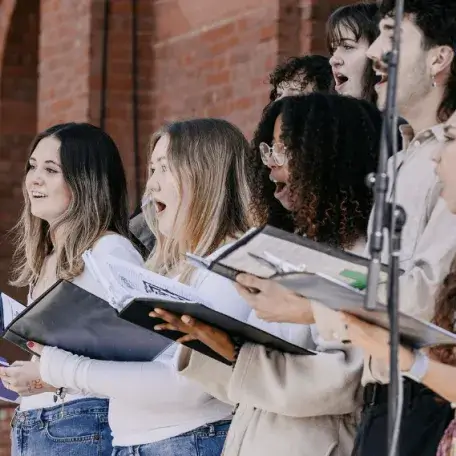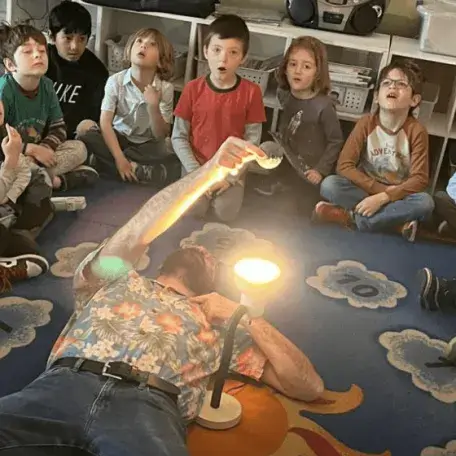Eclipse News
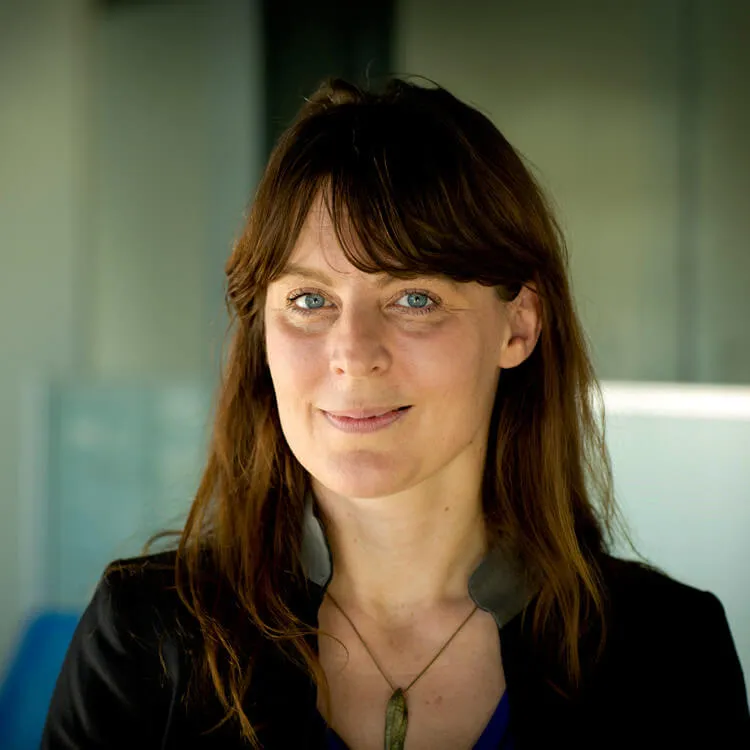
Eclipse Keynote - Dr. Lisa Kaltenegger
Dr. Lisa Kaltenegger is an award-winning astrophysicist and astrobiologist, Founding Director of the Carl Sagan Institute at Cornell, Professor in Astronomy, and a pioneer and world-leading expert in modeling habitable worlds and their light fingerprint. Her talk focused on exoplanet discovery!
UVM's Eclipse Day Events
Eclipse Day Scavenger Hunt
9am-12 noon @ hidden locations across campus
Student Art Exhibition
10am-2pm @ Williams Hall lobby
Quiet Activity Space
10am-2pm @ Discovery & Innovation Lobby Areas
Exploring Animal Biodiversity Through Sound - Dr. Laura J May-Collado
10-10:45am @ Davis Center Grand Maple Ballroom
Socio-Cultural Dimensions of Eclipses - Dr. Luis Vivanco
11-11:45am @ Davis Center Grand Maple Ballroom
The School of the Arts Celebrates the Eclipse with Performances
Located on the Royall Tyler Theater Portico / front steps11:30-11:45am - A Capella ensemble, Viridescent
11:45-12:00pm - Play on themes of light and dark
12:00-12:20pm - UVM Vocal Jazz Ensemble
12:20-12:35pm - Play on eclipse themes
12:35-1:00pm - Music Ensemble and Dance Students, audience participation encouraged!Enabling Technologies for Deep Space University CubeSats - Dr. Carl Brandon
12-12:45pm @ Davis Center Grand Maple Ballroom
Keynote Address - "Today's Solar Eclipse and the Secrets Eclipses Tell about New Worlds on our Cosmic Horizon," with Dr. Lisa Kaltenegger, Director of the Carl Sagan Institute at Cornell University
1-2pm @ Davis Center Grand Maple Ballroom
Eclipse Afterparty
5:30-9pm @ Brennan's Pub
Fun Facts about the 2024 Total Solar Eclipse
- Vermont saw an estimated 60,000 additional cars over eclipse weekend, bringing roughly 160,000 visitors. That's 26% of Vermont's total population!
- The Northeast Kingdom not only had the best, least cloud-obstructed views of the eclipse in the state; it had some of the best views in the entire country.
- Thousands of people, included news reporters and NASA researchers, changed their travel plans last minute to make it to Vermont's clear skies.
- This was be the most-watched natural phenomenon in history since the homes of 31.5 million Americans sat in its path. The 2017 eclipse only crossed 12.25 million homes.
- Vermont's last total solar eclipse was in 1932, and our next one isn't for over 50 years.
- Eclipse partners from across the state of Vermont donated tens of thousands of eclipse glasses to Astronomers Without Borders for future eclipses; all of UVM's disposed glasses were donated!
Check out all sorts of news, information, and highlights of Vermont's eclipse experience on Vermont Public.
